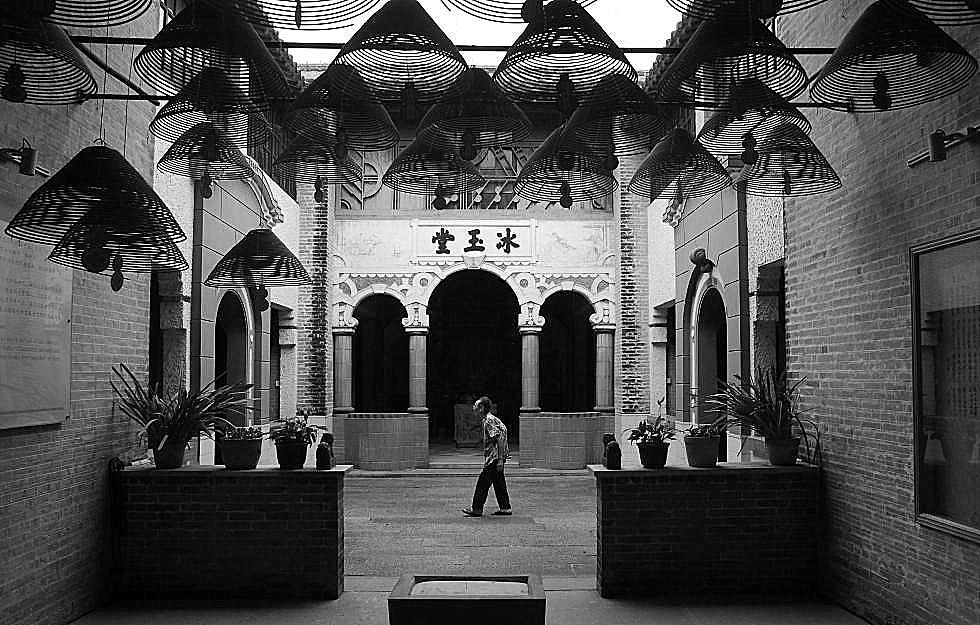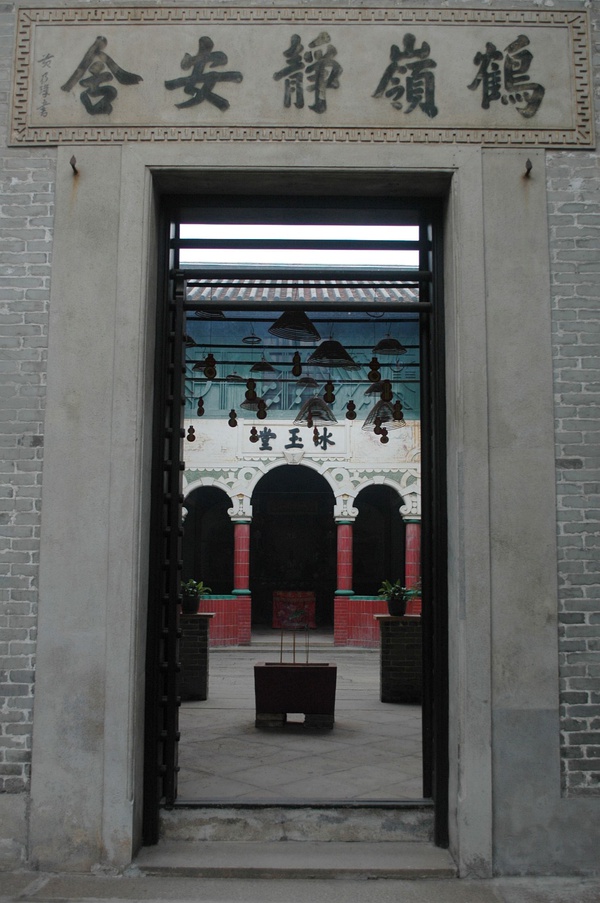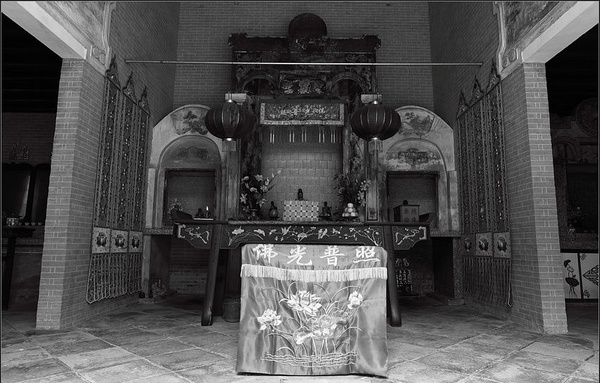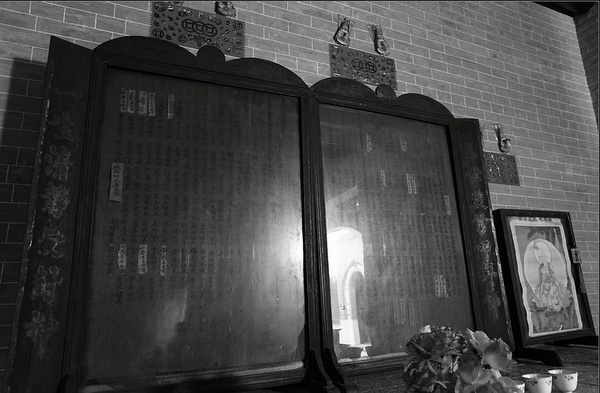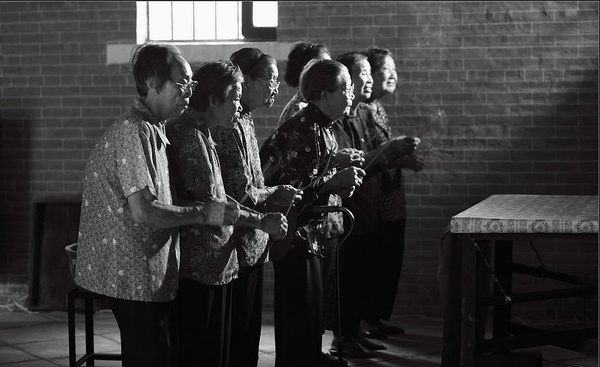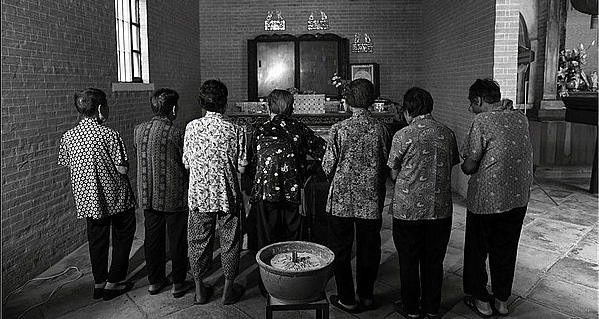A Place Is a Sanctuary: The Comb Sisters of the Bing Yu Tang (Pure and White Residence)
by Olivia Pei, University of Pennsylvania
Courtyard at the Bing Yu Tang (Pure and White Residence), Pearl River Delta, Guangdong Province, China
In the Pearl River Delta of the Guangdong Province of China there is a building called the Bing Yu Tang. The name means the "Pure and White Residence." A group of women called the Comb Sisters (zishunv) who have vowed never to marry live in the Bing Yu Tang. The Comb Sisters group was formed during the late nineteenth and early twentieth century. The prosperous silk industry around South Canton during the late nineteenth century enabled single women an opportunity to support themselves. Women who did not want to subject themselves to the harsh realities of what then often constituted oppressive marriages chose to become Comb Sisters and were able to support themselves through various employment opportunities in the silk industry. According to custom, to become a Comb Sister a woman pinned up (shuqi, meaning "combed up") her own hair and pledged in front of her relatives that she would never marry, staying single until she died.
The Comb Sisters (zishunv)
From the 1930s, the silk industry began to decline and many Comb Sisters migrated to Hong Kong and Singapore to serve as nannies. In 1949, with the founding of the People’s Republic of China, the Comb Sisters returned to China to unite with their families once again. However, as tradition did not allow for them to live at home, they built the Bing Yu Tang as a home for senior residents. The Bing Yu Tang building has two floors. The first floor is a gathering space with a room for worship. The Comb Sisters’ bedrooms were on the second floor. After the founding of the People’s Republic of China, the government banned girls from becoming Comb Sisters. Today, the Bing Yu Tang has become a museum and remains the only evidence of the existence of the Comb Sisters in the Pearl River Delta.
